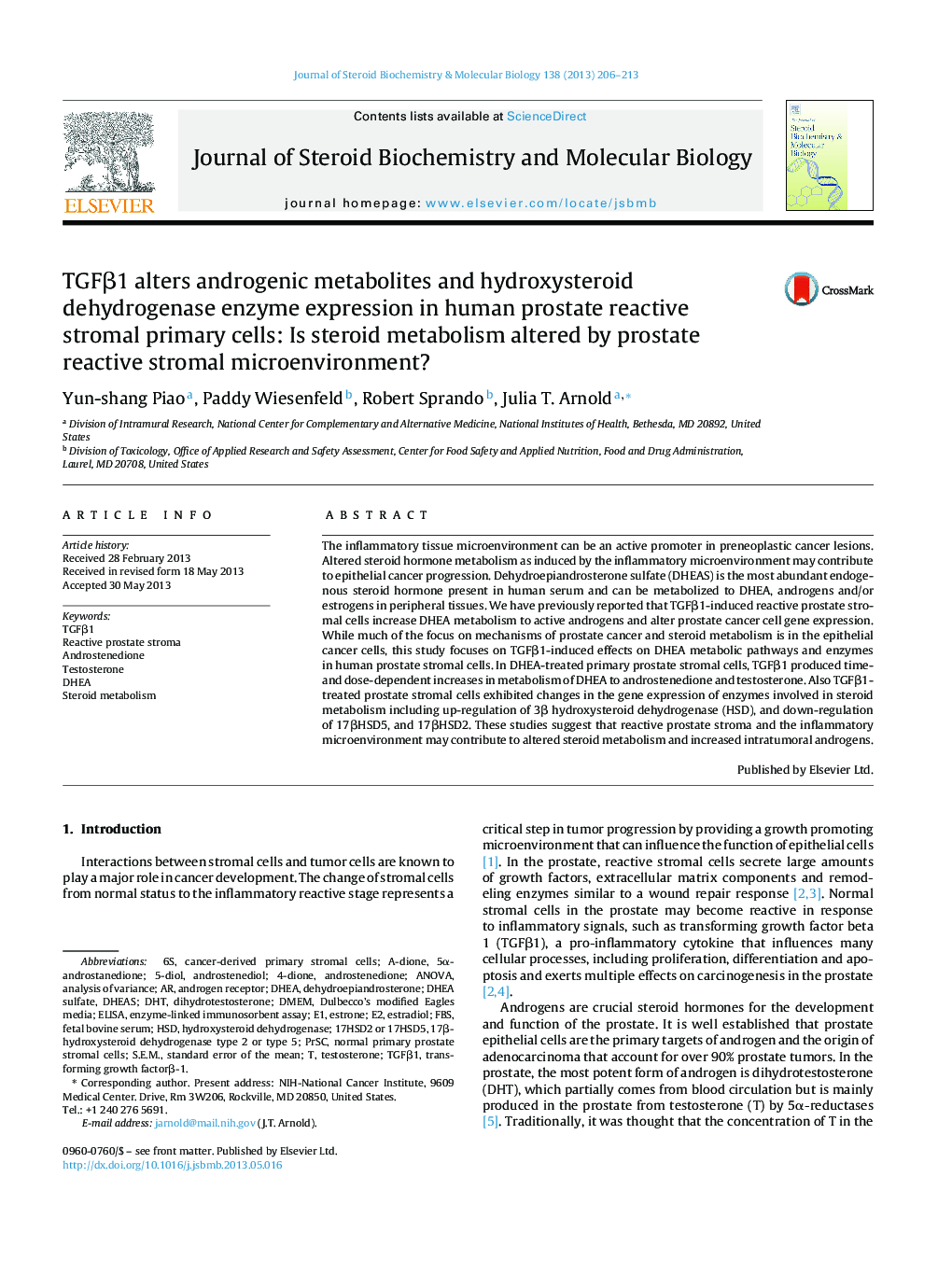| Article ID | Journal | Published Year | Pages | File Type |
|---|---|---|---|---|
| 8338958 | The Journal of Steroid Biochemistry and Molecular Biology | 2013 | 8 Pages |
Abstract
The inflammatory tissue microenvironment can be an active promoter in preneoplastic cancer lesions. Altered steroid hormone metabolism as induced by the inflammatory microenvironment may contribute to epithelial cancer progression. Dehydroepiandrosterone sulfate (DHEAS) is the most abundant endogenous steroid hormone present in human serum and can be metabolized to DHEA, androgens and/or estrogens in peripheral tissues. We have previously reported that TGFβ1-induced reactive prostate stromal cells increase DHEA metabolism to active androgens and alter prostate cancer cell gene expression. While much of the focus on mechanisms of prostate cancer and steroid metabolism is in the epithelial cancer cells, this study focuses on TGFβ1-induced effects on DHEA metabolic pathways and enzymes in human prostate stromal cells. In DHEA-treated primary prostate stromal cells, TGFβ1 produced time- and dose-dependent increases in metabolism of DHEA to androstenedione and testosterone. Also TGFβ1-treated prostate stromal cells exhibited changes in the gene expression of enzymes involved in steroid metabolism including up-regulation of 3β hydroxysteroid dehydrogenase (HSD), and down-regulation of 17βHSD5, and 17βHSD2. These studies suggest that reactive prostate stroma and the inflammatory microenvironment may contribute to altered steroid metabolism and increased intratumoral androgens.
Keywords
5α-androstanedioneDHEASA-dionedehydroepiandrosteroneTGFβ1S.E.M.HSDAndrostenediolDHEA sulfateFBSDMEMDHEADHT4-dione5-diolEstradiolEstroneandrostenedioneanalysis of varianceANOVAEnzyme-linked immunosorbent assayELISAtestosteronestandard error of the meanDihydrotestosteronefetal bovine serumSteroid metabolismhydroxysteroid dehydrogenaseAndrogen Receptor
Related Topics
Life Sciences
Biochemistry, Genetics and Molecular Biology
Biochemistry
Authors
Yun-shang Piao, Paddy Wiesenfeld, Robert Sprando, Julia T. Arnold,
